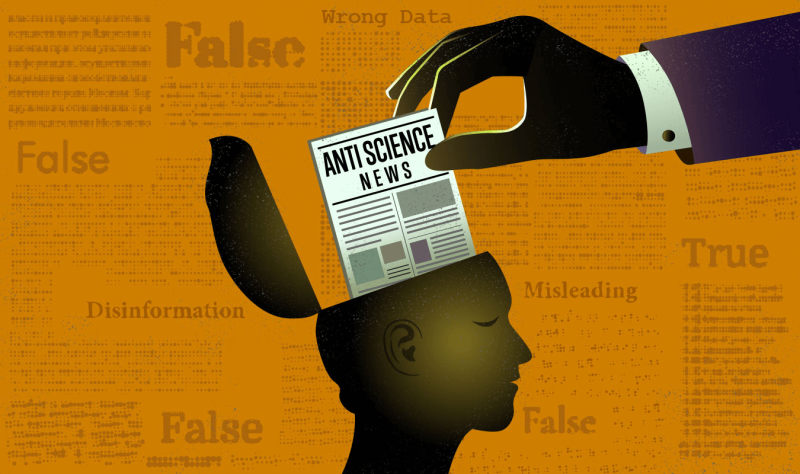Then, on February 7, the whole Parliament voted in favor of the reform (by 307 votes to 263), despite howls of outrage from antis who condemn NGTs as ‘new GMOs.’
So, after many years on the back foot, why is Team Science finally able to take on the anti-biotech lobby – and win? Here are five reasons outlining what has changed and why it matters for the future.
1. Scientists united to make their case
The pro-science community got organized. In the past, the activists who opposed genetic science were able to frame the struggle as ‘environmentalists vs. industry.’ And because everyone hates big corporations, particularly big chemicals corporations, this was easy to win. This time, scientists united to make their case – that innovation in genetics would be essential to make farming more sustainable and help it adapt to climate change.
A petition was organized with 37 Nobel laureates by the pro-science activist network WePlanet, and over 1000 scientists protested outside their labs on the eve of the vote. We’ve been proud to do our bit at the Alliance for Science. Now it’s the antis, particularly the powerful organic lobby, who looks like the entrenched vested interests – and the scientists who are the plucky upstarts trying to defend the environment, farmers, and healthy food.
2. The facts speak for themselves
The anti-biotech lobby is losing on the ground, and losing has its momentum. China has adopted genetically modified crops in a big way, and Golden Rice is finally under widespread cultivation in the Philippines. (This is despite the best attempts of Greenpeace, which went to the country’s Supreme Court to try to stop the country’s vitamin A-deficient children from having access to nutritionally improved healthier rice.)
There is now GM drought-tolerant wheat under cultivation in South America, and in Africa, GM cowpea is bringing more protein to food-insecure communities in Nigeria. The facts speak for themselves, and with time, the original ‘Frankenfoods’ fears have receded.
3. Study of misinformation now a huge area of academic interest
Anti-GMO claims and themes are now understood as part of a wider trend of science misinformation. At the Alliance for Science, we have studied this phenomenon, aiming to understand better how misinformation is generated and proliferates by quantifying it in mainstream and social media.
Claims by anti-science activists that GMOs would cause cancer are no different from those of anti-vax campaigners asserting that vaccines cause autism or, indeed, that global warming is a hoax.
In all these cases a well-understood scientific consensus – which the Alliance for Science re-quantified in the case of climate change – is being distorted by misinformers with an ideological agenda. The study of misinformation is now a huge area of academic interest, and practitioners are finding better ways to combat it in real time.
4. Climate deniers are on the wrong side of science
The mainstream environmental movement has backed away. While the Green Party and the hard Left have been the major opponents of genetic engineering in the past and were the loudest voices against NGTs in the European Parliament, it finds itself in an uncomfortable alliance with the authoritarian political far-right, which opposes genetics for reasons of cultural conservatism or nationalism.
Greenpeace itself is split, with the UK part of the network no longer involved in any anti-biotech campaigning, no doubt because its employees do not want to be aligned with anti-vaxxers and climate deniers as being on the wrong side of science. Some of the bigger environmental NGOs, such as EDF, have signaled a more open-minded approach, and the movement as a whole now has a more single-minded focus on climate in particular. Anti-GMO is yesterday’s campaign if not last decade’s.
5. Genetic engineering is being widely used
The science moved on. The first generation of ‘GMO’ crops were herbicide-tolerant commodity crops like soybean, corn, and canola. It was easy for urban activists to oppose them, even if farmers found them useful and adopted them over vast areas. Genetic engineering has become so widely used that in just the last month, we’ve seen a purple tomato for home-growers and a glowing houseplant.
Old debates about ‘foreign’ DNA and scary urban myths about fish genes in strawberries are no longer relevant in the age of CRISPR, which is just one of many new molecular tools for genetic modification.
In addition, mRNA vaccines brought a rapid end to the Covid pandemic, something that would never have happened had the activists succeeded in stopping the whole science of genetics. And gene editing in healthcare is emerging as a hugely promising area, covering everything from genetic diseases to new approaches for tackling cancer.
So, is the anti-biotech movement over? Not quite. Misinformers like Dr Mercola and Robert F Kennedy Jr have made lucrative careers trying to scare people about scientific innovations, and they will not give up easily.
The entrenched positions of the dominant environmental NGOs will not be reconsidered anytime soon for fear of sparking a loss of faith in big green brands. The anti-GMO scene’s glory days are well and truly over. But it has cost science a quarter century of delay, an experience the world cannot afford to repeat.
Mark Lynas is a climate change author and campaigner. He is an advisor to the former President of the Maldives, Mohamed Nasheed. He is the research and climate lead with the Alliance for Science, where he has co-authored peer-reviewed papers on vaccines, climate, and GMOs focusing on scientific consensus and misinformation. Find Mark on X @mark_lynas































